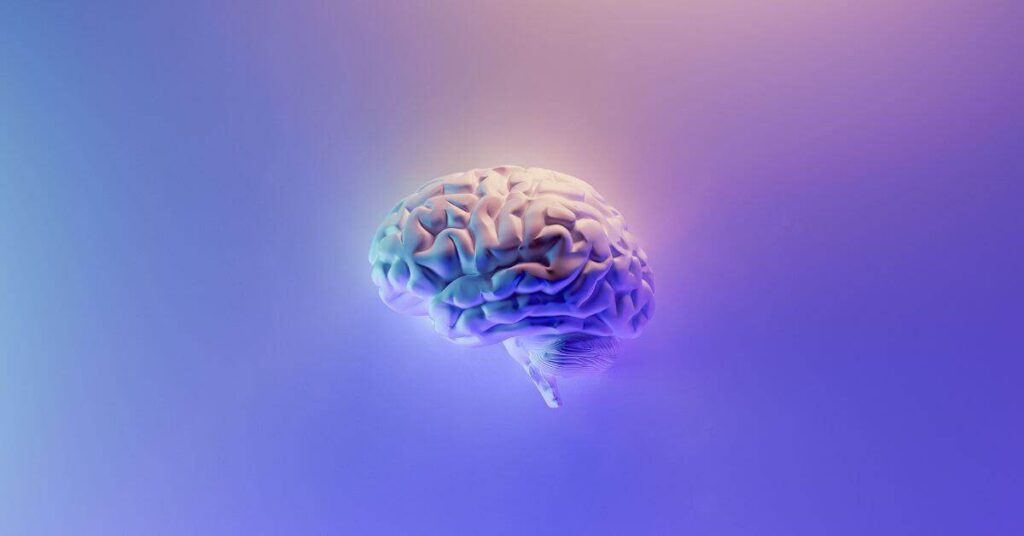Creatine is a substance produced naturally in the body that aids in the production of energy. It can also be found in certain foods such as meat and fish. Athletes frequently consume creatine supplements to enhance their performance and help to increase muscle mass.
Attention deficit hyperactivity disorder (ADHD) is a common condition characterised by difficulty paying attention, excessive activity, and acting without thinking. People with ADHD often struggle with sustaining focus and concentration. This can negatively impact their work performance, education, and relationships.
Creatine offers multiple brain benefits, including enhanced energy metabolism, improved working memory, reduced mental fatigue, and neuroprotection. Both scientific studies and anecdotal evidence support the use of creatine in the treatment of ADHD. While it’s not a cure for ADHD, creatine may offer some benefits for individuals seeking to manage their symptoms.
How Creatine May Help With ADHD
Studies have indicated that creatine may have potential benefits for individuals with ADHD.
One study conducted in 2003 discovered that taking creatine supplements helped enhance working memory and brain performance. The study suggests that creatine supplementation could have short-term benefits for individuals requiring improved mental performance.
Another study on creatine supplementation supports the findings and reported an increase in memory and recall and a number of other cognitive benefits.
There is a lot of anecdotal evidence of creatine use improving brain fog and ADHD symptoms. Many of these statements are found on internet forums such as Reddit.
What Redditors Say About Using Creatine For ADHD
Many Redditors have reported positive experiences using creatine to improve their ADHD symptoms. For example, one Redditor wrote:
“I’ve been taking creatine for about 6 months now and it’s made a huge difference in my ADHD symptoms. I’m able to focus better, I’m less impulsive, and I have more energy. I highly recommend it to anyone with ADHD.”
Another Redditor wrote:
“I started taking creatine a few weeks ago and I’ve already noticed a big difference in my ADHD symptoms. I’m not as hyperactive, I’m able to sit still for longer periods of time, and I’m able to focus on tasks better. I’m really happy with the results so far.”
This Redditor claims that creatine reduced their brain fog by 50%:
“Creatine may have decreased my severe brain fog by at least half. Feeling much more motivated and energized today. Vision less blurry. Motor skills improved.”
Many ADHD sufferers look to supplements like creatine to potentially enhance their mental focus and help manage distractibility. But can creatine actually help improve attention and concentration issues related to ADHD?
Let’s take a look.
What Is Creatine And What Does It Do For The Brain?
Creatine is a natural substance that helps to supply energy to the muscles and brain. Creatine is converted into phosphocreatine (PCr), which is stored for use when required.
It has a number of benefits for the function of the brain:

Enhances Brain Energy Metabolism
Creatine plays a vital role in producing and storing energy in the form of adenosine triphosphate (ATP).
ATP, or adenosine triphosphate, is the body’s energy currency. It is used to power all of the body’s cells and tissues, including the muscles, brain, and heart.
Creatine combines with phosphate to form phosphocreatine, which serves as a readily available energy reserve.
When the cells need energy, PCr can quickly release a phosphate group to ADP, which is the depleted form of ATP. This reaction produces ATP, which can then be used to power the muscles.
Supplements help increase creatine levels beyond what’s normally obtained from diet and internal production, allowing for improved physical and mental performance.
This replenishment of ATP helps maintain and support cognitive processes that require energy, such as thinking, learning, and memory.
Improved Working Memory
Working memory is the cognitive function responsible for temporarily storing and manipulating information needed for various tasks, including problem-solving and decision-making.
Research suggests that creatine supplementation may enhance working memory capacity, potentially improving an individual’s ability to manage and process information in the short term.
Potential Impact on Neurotransmitters
Some studies, particularly in animal models, have indicated that creatine supplementation might influence neurotransmitters, including dopamine.
Dopamine is a key neurotransmitter involved in motivation, reward, and attention regulation.
It is also implicated in various neurological and neuropsychiatric conditions, including ADHD.
Creatine’s influence on dopamine may have implications for mood, motivation, and attention.
Reduction in Mental Fatigue
By supporting increased energy availability, creatine supplements are believed to help reduce mental fatigue.
This reduction in fatigue may lead to improved mental endurance, allowing individuals to maintain focus and concentration over longer periods without succumbing to cognitive exhaustion.
Neuroprotection
Some research suggests that creatine may have neuroprotective properties.
It has been explored for its potential benefits in neurodegenerative conditions like Alzheimer’s and Parkinson’s disease.
While the exact mechanisms are not fully understood, creatine’s ability to enhance energy production and its antioxidant properties may contribute to its neuroprotective effects.
More Information On Creatine And Brain Health
What Should I Look for When Purchasing Creatine Supplements?
Creatine monohydrate is the form of creatine most used in research studies to establish its benefits. It is deemed to be the most effective form of creatine, partly due to it being the most stable.
When purchasing creatine, it’s recommended to look for a reputable brand like Warrior, Optimum Nutrition, Bulk or MyProtein.
Also, look for creatine monohydrate in powder form as this is more stable than liquid forms.
It’s also worth noting that creatine should have little to no odour. If you do experience any sort of smell when you open your creatine or it appears to be clumpy, you’ve likely got a contaminated batch. This is pretty uncommon but you should be returning it for a replacement.
How Much Creatine Should You Take?
The standard daily dose is 3-5 grams of creatine monohydrate. It can be dissolved in water, fruit juice or mixed into foods like yoghurt. You can split the dose into two or three smaller doses throughout the day.
It is important to note that you may not notice results immediately. It may take a few weeks or even months to see the full benefits of creatine supplementation.
Alternatives to Creatine for Treating Attention Deficit Hyperactivity Disorder (ADHD)
There are a number of other natural supplements and lifestyle changes that may help to improve ADHD symptoms. These include:
Omega-3/6 fatty acids
Omega-3 fatty acids are essential fats that are important for brain health. Studies have shown that omega-3/6 fatty acid supplementation can improve cognitive function and reduce ADHD symptoms in children and adults. [6]
Zinc
Zinc is a mineral that is essential for brain development and function. Studies have shown that zinc deficiency is common in people with ADHD, and that zinc supplementation can improve cognitive function and reduce the need for traditional ADHD medication.
Magnesium
Magnesium is a mineral that is essential for many bodily functions, including brain function.
A study into magnesium and vitamin D supplementation found that giving these supplements to children helped reduce problems related to conduct, social interaction, and anxiety.
However, it didn’t have a significant impact on psychosomatic issues.
This suggests that Vitamin D and magnesium might be helpful in managing some aspects of ADHD in children, but more research is needed to fully understand their role.
It is important to note that these supplements and lifestyle changes are not a cure for ADHD. They may help to improve ADHD symptoms, but they should be used in conjunction with other treatments, such as medication and therapy.
Additional tips for managing ADHD symptoms
- Create a routine and stick to it as much as possible. This includes having regular sleep and meal times and sticking to a schedule for school or work.
- Break down large tasks into smaller, more manageable ones. This will make the tasks seem less daunting and help you to stay focused.
- Take breaks when you need them. Get up and move around, or do something else that you enjoy.
- Avoid distractions as much as possible. This means turning off your phone, closing unnecessary tabs on your computer, and finding a quiet place to work.
- Reward yourself for your accomplishments. This will help you to stay motivated and on track.
If you are struggling to manage your ADHD symptoms, talk to your doctor. They can help you to develop a treatment plan that is right for you.
Creatine Therapy For ADHD
Long-term studies on the safety and efficacy of creatine supplementation for ADHD are still needed. However, creatine is a well-studied supplement with a good safety profile. It is generally considered to be safe for long-term use.
Creatine supplementation has shown promise in improving cognitive function and reducing symptoms related to ADHD, particularly in areas like working memory and mental fatigue.
Both scientific studies and anecdotal evidence support the use of creatine in the treatment of ADHD.
While it’s not a cure for ADHD, creatine may offer some benefits for individuals seeking to manage their symptoms.
However, it’s essential to use reputable brands and consider other lifestyle changes and supplements as part of a comprehensive ADHD management plan.
Always consult with a healthcare professional before starting any new supplement regimen.







